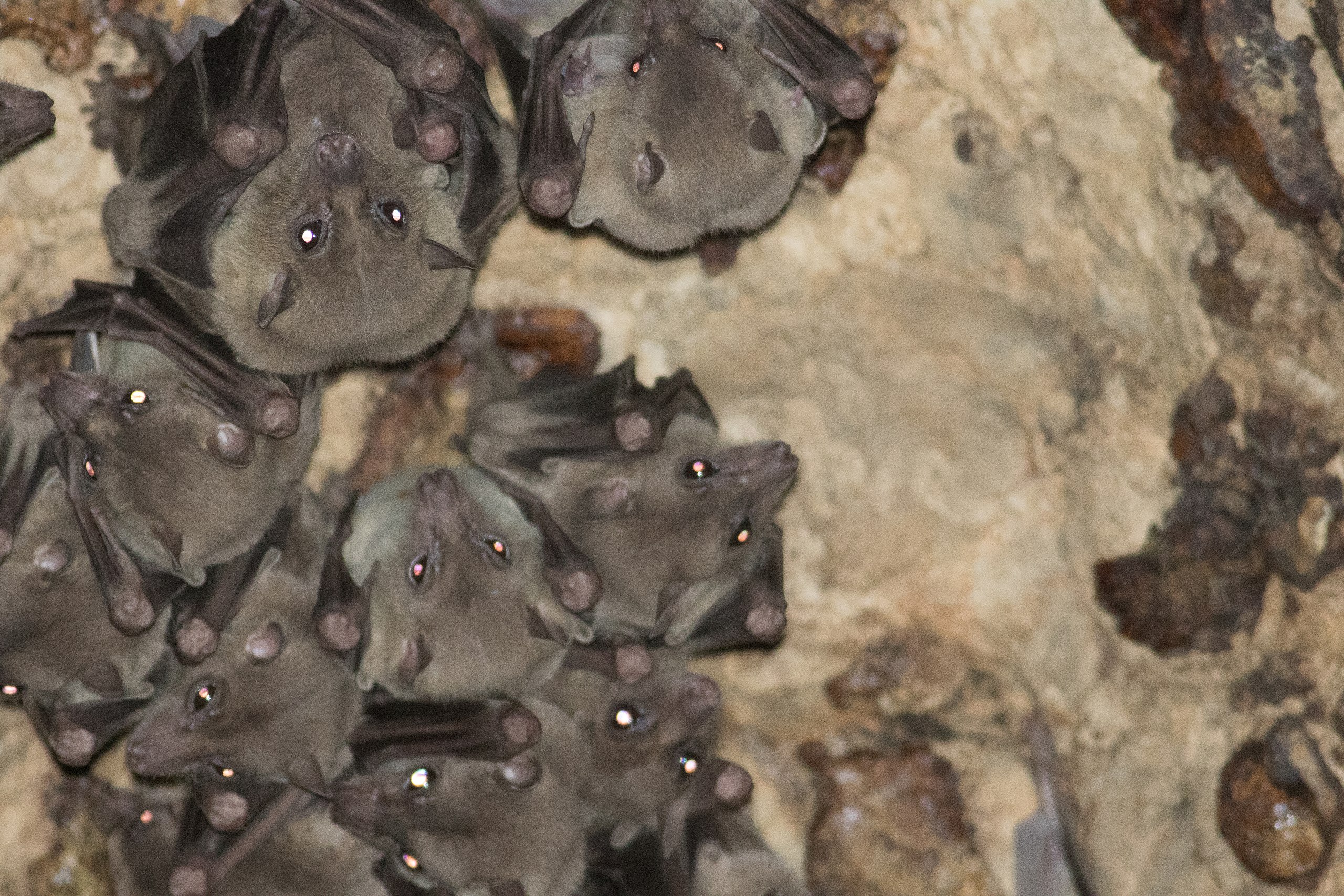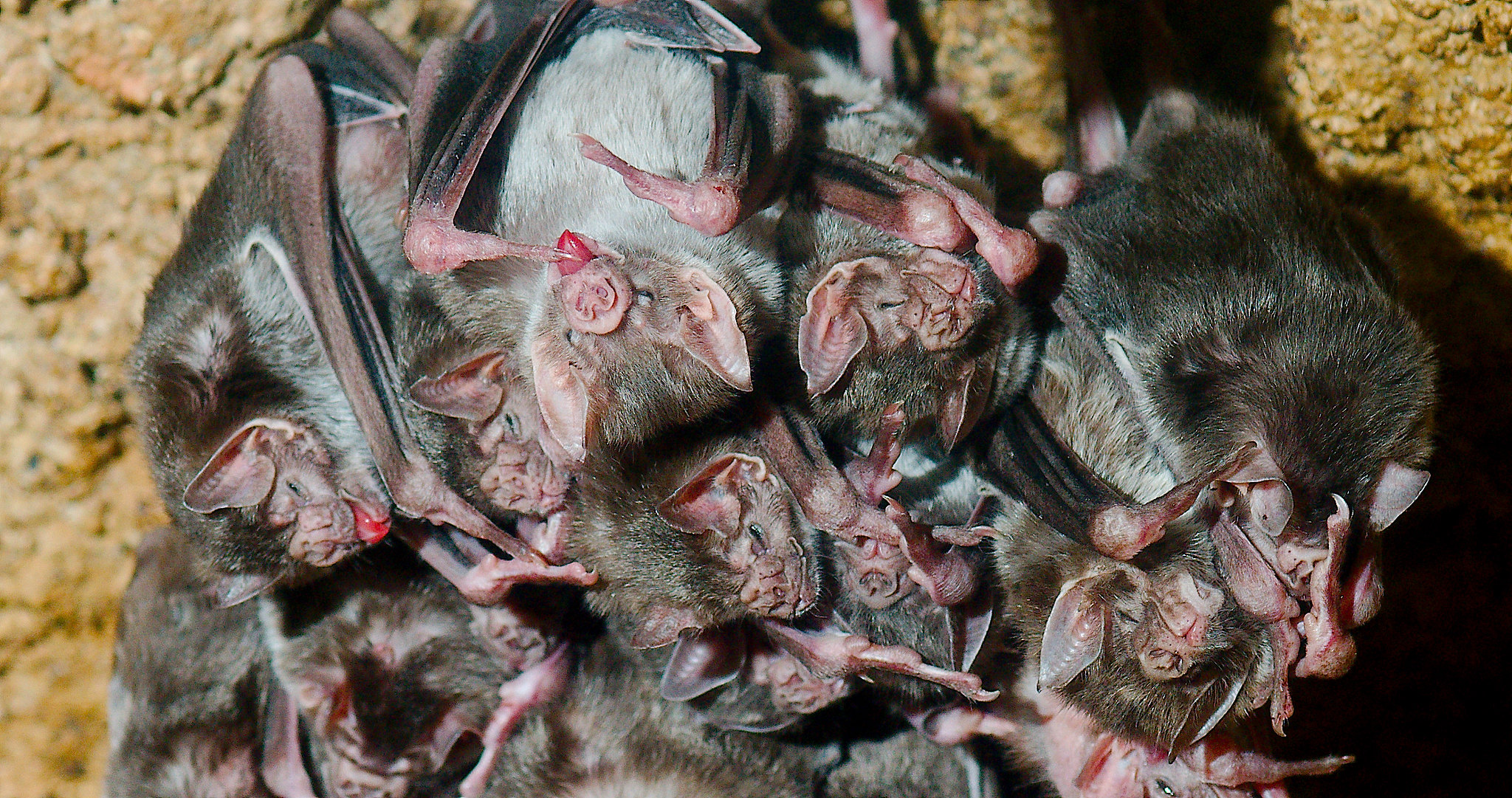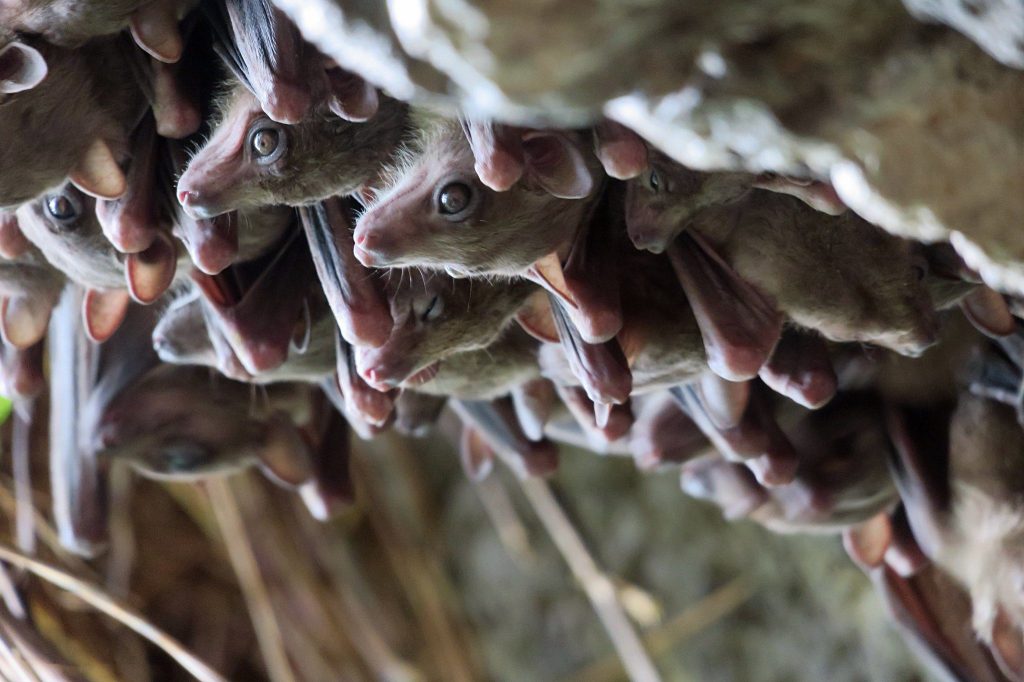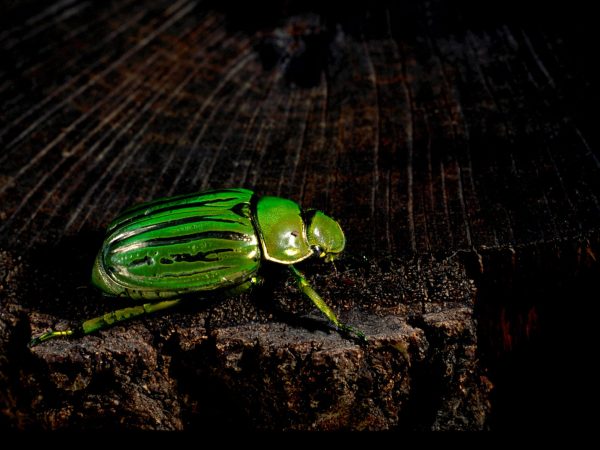On a dark night in the desert, Bill Doering hauls a huge hairnet to the entrance of a cave, but the netting isn’t for hair. It’s for bats. He’s tracking migration by species. The fine mesh web traps flying mammals as they pass…if they pass. He has more luck hearing bats with a call detector than seeing them in the net, especially on full-moon nights when bats avoid the net. What he hears with a detector makes up for what he can’t see flitting from one roost to the next.
“During summer, they’ll often be in night roosts. When they have full tummies, they go somewhere and huddle up,” says Bill Doering, wildlife biologist. “You see transient clusters that are only there for one evening. They’ll digest their supper there then go off again and feed. There’s a lot of grooming and interacting going on in roosts.”
There’s a lot less action in caves, but more concern. Doering counts hibernating bats too, but he limits his presence in the cavern.
“I haven’t seen them fly out, but it could happen,” he says. “We stay in there as little as possible and quickly get our count. If we’re in there too long, they start stirring.”
When bats hibernate in caves they often cluster up like they do in night roosts, but there’s less activity. They’re in torpor state. That means their body temperature is near freezing and they barely move. They’re in reserve mode.
Bill can’t tell if they’re sick when they’re in torpor, but if one is crawling on the ground or has dehydrated wings (dry like dead leaves) something is clearly wrong.

Social Distancing, Bat Style
Another indicator of a problem is separation. A new study from Tel Aviv University published this month shows that sick Egyptian fruit bats self-isolate. They don’t cluster. Their immunity to viruses is strong so they’re rarely sick, but when they’re down they don’t mess around. They leave the party.
“The bats’ choice to stay away from the group is highly unusual for these animals. Normally these bats are extremely social creatures, living in caves in very crowded conditions,” says Maya Weinberg, research student. “In fact, the ‘sick’ bats’ behavior is very reminiscent of our own during recovery from an illness. Just as we prefer to stay home quietly under the blanket when we are ill, sick bats, living in very crowded caves, also seek solitude and peace as they recuperate.”
Weinberg and postdoctoral researcher Kelsey Moreno studied Egyptian fruit bats with some animals in the colony receiving a sick-like protein to trigger an immune response. Those bats were GPS trackable so scientists knew where the bats went when they had a fever. Not only did the sick bats stay away from other bats, they didn’t leave the colony to search for food for two nights in a row, which reduces disease spread.

Vampire Bats Keep Their Distance
A vampire bat study released in fall 2020 shows the same response. In this case, roosting bats wore backpacks that recorded social encounters. Sick bats living in a hollowed tree in Belize spent less time with other bats in the same colony.
“The proximity sensors gave us an amazing new window into how the social behavior of these bats changed from hour to hour and even minute to minute during the course of the day and night, even while they are hidden in the darkness of a hollow tree,” says Simon Ripperger, Ohio State University evolution, ecology and organismal biology postdoctoral researcher. “In the wild, vampire bats, which are highly social animals, keep their distance when they’re sick or living with sick groupmates. And it can be expected that they reduce the spread of disease as a result.”
Beyond bats, studies — dating back to before we “social distancing” became part of our lexicon — show other animals self-isolate too. Dairy cows isolate for calving and for sickness. Rodents, like lab rats, self-isolate when sick too. And sometimes ill honeybees don’t return to hives. It’s self-removal for the sake of enhancing colony survival.
Understanding how animals recognize virus risk and respond to it may one day lead to humans handling virus load better than we do now. Ideally, we become more like bats.
“Bats are really good at handling intercellular infections like viruses. They can carry pretty heavy viral loads without getting sick themselves or without exhibiting symptoms,” Doering says. “We’re trying to understand the intricacies of their ability to fight infections to see if it can help our ability to fight infections.”




If workers were not docked pay for staying home when sick and those with small children had an alternative caregiver, I do believe that the natural inclination would be to self-isolate when ill. The “common good” is no longer about group survival but the individual’s financial security, corpirate good and the economy.
Thank you for this information. I love Bats they are such incredible animals. I have learned so much from this information, The WHO should read these articles and more people should take head of the fact that isolating is really a big factor in healing themselves and keeping others around you from getting sick. Bravo.